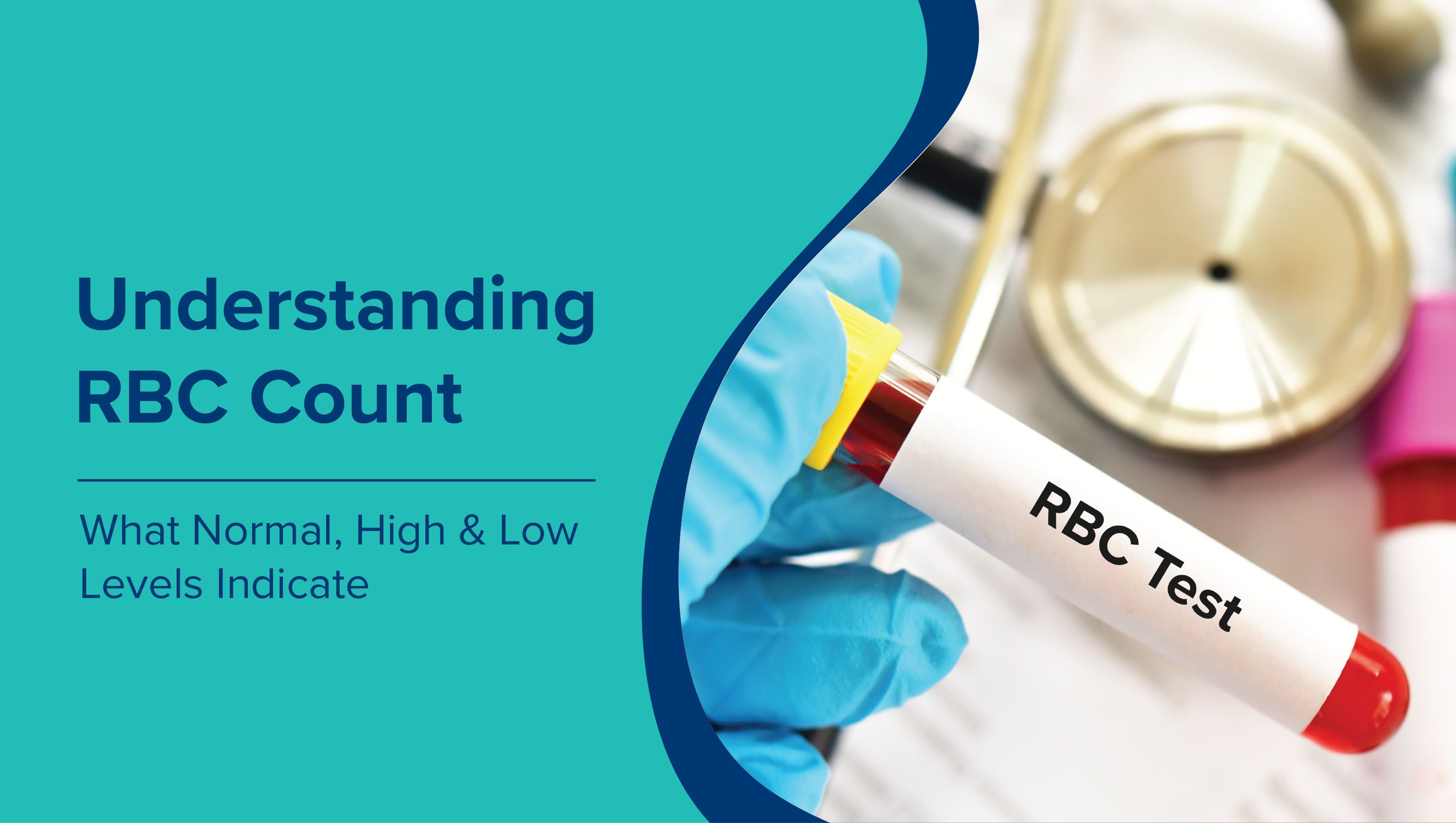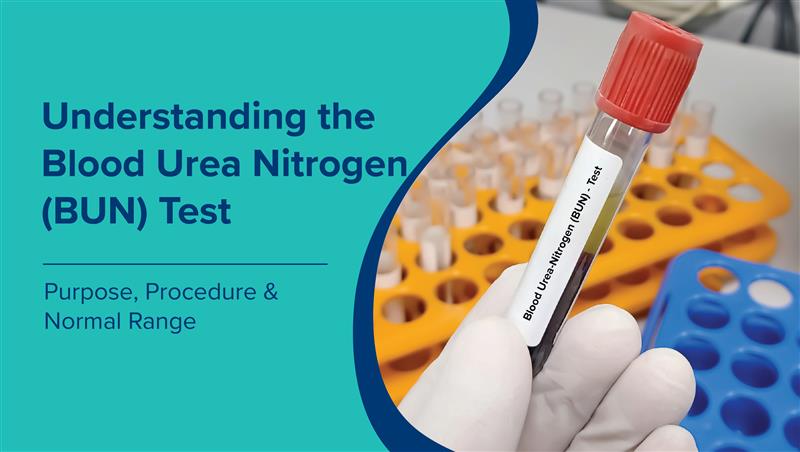The RA factor test is often recommended when symptoms like joint pain, swelling, or stiffness suggest an underlying autoimmune condition. It helps doctors investigate the presence of inflammation-related disorders such as rheumatoid arthritis (RA) by measuring specific antibodies in the blood. Early testing can support timely treatment and better outcomes. In this article, we have discussed everything you need to know about the RA factor test, including its purpose, procedure, result interpretation, and the steps that follow.
What Is the RA Factor Test?
The RA factor test is a blood test that measures the level of rheumatoid factor (RF) - an antibody produced by the immune system - in the body. In healthy individuals, these antibodies are usually absent or present in very low amounts. However, in people with autoimmune diseases, the body mistakenly produces high levels of RF, which may attack healthy tissues.
This test is most commonly used to help detect rheumatoid arthritis, but elevated RF levels can also be seen in other conditions such as Sjögren’s syndrome, lupus, or even chronic infections. While the presence of RF doesn’t confirm a diagnosis on its own, it provides an important clue when considered alongside symptoms and other test results.
Why Is the RA Factor Test Done?
The RA factor test is primarily used to help diagnose autoimmune diseases, especially rheumatoid arthritis. Doctors often recommend this test when a patient shows signs of persistent joint pain, swelling, or stiffness, particularly in the hands and feet.
Common uses of the RA test include:
- Early detection of rheumatoid arthritis, allowing for timely treatment before joint damage progresses
- Evaluating unexplained inflammatory symptoms, such as fatigue, low-grade fever, or generalised body aches
- Diagnosing other autoimmune conditions, like Sjögren’s syndrome or systemic lupus erythematosus (SLE)
- Monitoring disease activity in people already diagnosed with RA
While the test alone isn’t enough for a complete diagnosis, it forms a key part of the overall evaluation.
Symptoms That may Lead to an RA Test
Doctors may recommend an RA factor test when certain symptoms suggest the possibility of rheumatoid arthritis or other autoimmune conditions. These symptoms often develop gradually and can vary from person to person.
Common signs that may prompt an RA test include:
- Persistent joint pain or tenderness, especially in small joints like the fingers, wrists, or toes
- Morning stiffness that lasts more than 30 minutes
- Swollen or warm joints on both sides of the body
- Fatigue, weakness, or low-grade fever without a clear cause
- Unexplained weight loss or general body discomfort
How the RA Factor Test Is Performed
The RA factor test is a simple blood test that can be done at any diagnostic lab or through home collection services offered by providers such as MaxAtHome. It checks for the presence and level of rheumatoid factor antibodies in the blood.
Here’s what to expect:
- Procedure: A small blood sample is drawn from a vein, usually in the arm. The process takes just a few minutes.
- Preparation: No fasting or special preparation is typically required unless advised by the doctor.
- Safety: The test is safe and minimally invasive, with only mild discomfort at the needle site.
- Timing: Results are usually available within 24 to 48 hours, depending on the lab.
Understanding RA Factor Test Results
RA factor test results are measured in units per millilitre (IU/mL) and help indicate whether rheumatoid factor levels are within the normal range or elevated.
RA Factor Normal Range Means
A result below 14 IU/mL is usually considered normal. This indicates that rheumatoid factor levels are within the expected limit. The reference range is generally the same for both men and women, although slight variations may occur depending on the laboratory.
RA Factor Range Chart
|
Category |
RA Factor Normal Value (IU/mL) |
Notes |
|
RA Factor Normal Range Male |
0 – 20 IU/mL |
Considered within normal limits; check lab-specific reference ranges. |
|
RA Factor Normal Range Female |
0 – 20 IU/mL |
Same as males; minor variations possible in some labs. |
|
Borderline/Equivocal |
20 – 40 IU/mL |
May require further testing/clinical review |
|
High Value |
> 40 IU/mL |
Suggests autoimmune activity, possible RA or other conditions |
RA Factor Positive Means
A positive RA factor test result generally indicates that your immune system is producing higher-than-normal levels of rheumatoid factor. This may be linked to autoimmune conditions such as rheumatoid arthritis, Sjögren’s syndrome, or other connective tissue diseases. However, a positive test alone does not confirm disease, as some healthy individuals may also test positive.
RA Factor Negative Means
A negative RA factor test result means that the antibody was not detected in significant amounts (typically below 14 IU/mL). This usually suggests the absence of autoimmune activity, although some people with early or mild rheumatoid arthritis may still have negative results.
High RA Factor Means
If the RA factor level is much higher than normal, it could point to a more active or severe form of RA. High levels may also be seen in Sjögren’s syndrome, lupus, or certain chronic infections.
What Happens After the Test?
Once the RA factor test results are available, doctors evaluate them alongside the patient's symptoms and may recommend further testing to confirm a diagnosis or rule out other conditions.
Possible next steps include:
-
Additional blood tests: These may include Anti-CCP antibodies, ESR (erythrocyte sedimentation rate), and CRP (C-reactive protein) to assess inflammation and support the diagnosis of autoimmune diseases.
-
Imaging studies: X-rays, ultrasound, or MRI scans might be ordered to check for joint damage or inflammation, especially in suspected rheumatoid arthritis.
-
Follow-up consultation: A rheumatologist or physician will interpret the RA factor report in the context of the patient’s overall health, medical history, and test results.
-
Treatment planning: If rheumatoid arthritis or another autoimmune condition is confirmed, early treatment may include medications, lifestyle changes, and regular monitoring.
How MaxAtHome Can Help
Getting an RA factor test doesn't have to mean travelling to a lab - MaxAtHome brings diagnostic services right to your doorstep. Whether it’s for early screening or ongoing monitoring, MaxAtHome ensures timely, comfortable, and expert-backed care.
Here’s how MaxAtHome supports RA factor testing and follow-up:
-
At-home sample collection: A trained phlebotomist visits your home to collect the blood sample safely and efficiently, saving time and avoiding the hassle of travel.
-
Accurate and reliable testing: All tests are processed in NABL-accredited labs, ensuring accurate rheumatoid factor levels and dependable results.
-
Timely digital reports: Test reports are shared securely online—fast, easy to access, and ready for doctor consultations.
-
Expert care support: Follow-up services such as Physiotherapy At Home or doctor visits can be arranged if further care is needed for joint pain or autoimmune symptoms.
If you are planning to get your RA factor test done, schedule the test online through our easy-to-use booking platform or call 09240299624 to speak with our customer care team.
Frequently Asked Questions
What is the RA factor test used for?
The RA factor test helps detect rheumatoid factor, an antibody that may be elevated in people with rheumatoid arthritis, Sjögren’s syndrome, and other autoimmune diseases. It aids in diagnosis and monitoring of these conditions.
What is the RA factor's normal value?
A normal RA factor value is usually below 14 IU/mL, but this can vary slightly depending on the lab. This is considered within the rheumatoid factor normal range for both males and females.
What does RA factor positive mean?
If your RA factor level is above the normal range, it is considered positive, which may suggest autoimmune activity. However, a RA factor positive result doesn’t confirm rheumatoid arthritis on its own.
What does RA factor negative mean?
A RA factor negative result means the test didn’t detect high levels of rheumatoid factor. However, some people with RA may still test negative - this is called seronegative rheumatoid arthritis.
What is considered a high level of rheumatoid factor?
A high RA factor usually means levels significantly above 14 IU/mL. Higher values may be linked with more severe disease or other autoimmune conditions, but must be interpreted alongside symptoms.
Does RA factor normal range differ between men and women?
In most cases, the RA factor normal range for females and males is the same. Some labs may show slight variations, but generally, values below 14 IU/mL are considered normal.
How is the RA test procedure done?
The RA test is a simple blood test. A sample is taken from a vein, and no special preparation is needed. Results are usually available within 1–2 days.
Where can I book an RA factor test near me?
You can book an RA factor test near you through MaxAtHome’s home sample collection service, available in cities like Delhi, Noida, Gurugram, Mumbai, and more. The test is conducted by trained professionals, and reports are delivered securely online, making it easy to get tested without visiting a diagnostic centre.















